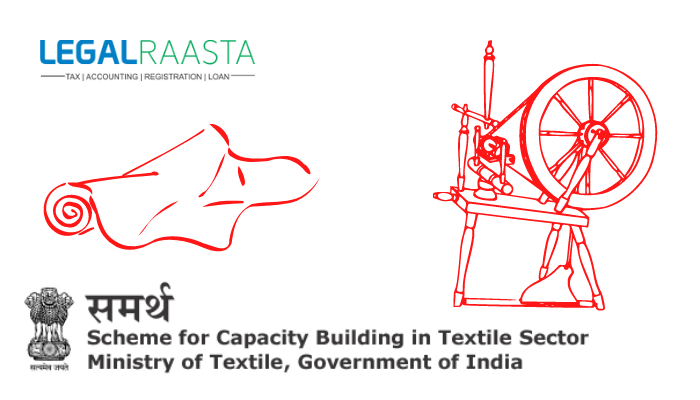Money Market Instruments in India : An Overview
Money Market Instruments is a security market with short-term maturity of up to one year. Banks, non-banking companies, and reception houses from the money market. It facilitates short-term currency trading and retains the appropriate threats in the market.
What are Money market Instruments?
Money market Instruments with short-term growth of up to 1 year, which are used as instruments to raise money by the issuer are known as financial market instruments.
These are mortgages that offer fixed interest rates and are generally not secure. There is no security guarantee, and the risk of non-payment is extremely high. However, financial market instruments have a high level of credit which ensures that issuers do not make mistakes, making them a way to go to investors looking for options to park their temporary money and get the same consistent return.
Money market objectives
Below are the main objectives of the financial market:
- Providing lenders as individual investors, government, etc. on short-term loans at a reasonable price. Lenders will also have the opportunity to purchase assets as securities in the financial markets are temporary.
- It also enables lenders to convert their idle money into a viable investment. In this way, both the lender and the borrower benefit.
- The RBI controls the money market. Therefore, it helps to control the level of money in the economy.
- As many organizations are short on their operating needs. The money market helps such organizations to have the necessary funds to meet their operating financial needs.
- It is an important source of revenue in the public sector for national and international trade. And of course, it gives banks the opportunity to park their surplus funds.
Features in Money market Instruments
- High Discharge
One of the most important features of these financial assets is the high volatility they provide. They create a steady income for the investor and short-term maturity makes them more liquid. Due to this feature of the financial market the instruments are considered as close to financial objects.
- Secure Investment
These financial instruments are one of the safest ways to invest in the market. Since stock market tools have a high credit rating and returns are adjusted ahead of time, the risk of losing your investment is very small.
- Fixed return
Since stock market instruments are offered at a discount on face value, the amount an investor earns from maturity is determined in advance. This effectively helps people to choose a tool that will suit their needs and investment limit.
What Is the Purpose of the Money Market?
- Stores Liquid On The Market
One of the most important tasks in the financial market is to maintain financial stability in the economy. Some of the instruments of the financial market are an important part of the monetary policy framework. The RBI uses these temporary protections to get money into the market within the required range.
- Provides Funds for Short Notice
The Financial Market offers a great opportunity for individuals, small and large companies, lending banks with very short notice. These institutions can borrow money by selling financial market instruments and financing their short-term needs.
It is better for institutions to borrow money from the market instead of borrowing from banks, because the process is problem-free and the interest rate on these assets is also lower than for commercial loans. In some cases, commercial banks also use these financial market instruments to maintain a fixed amount of money in accordance with the RBI guidelines.
- Use of Residual Funds
Money market Instruments make it easier for investors to dispose of their remaining money, maintain their identity, and earn a tangible profit. It helps save investors in investment channels. These investors include banks, non-financial companies, and local and local governments.
- Financial Flow Resources
Money market Instruments facilitate financial flow by allowing easy money transfers from one sector to another. This ensures transparency in the system. High financial flow is essential for overall economic growth, by promoting industrial and commercial development.
- It assists in monetary policy
The advanced financial market helps the RBI to better implement its monetary policies. Currency transactions affect short-term interest rates, and short-term interest rates provide an overview of the country’s current financial situation. This further assists the RBI in formulating future monetary policy, determining long-term interest rates, and appropriate banking policy.
Kinds of Money Market Instruments:
1. T-Bills
Treasury Bills or T-Bills issued by the Reserve Bank of India on behalf of the Central Government for the receipt of funds. They have a short-term maturity of up to one year. Currently, T-Bills are issued for 3 maturity periods, which is 91 days T-Bills, 182 days T-Bill, one year T-Bill.
T-Bills are issued at a discount on face value. At maturity, the investor receives a face value. The difference between the original value and the face value is the return earned by the investor. It is a complete fixed income investment as supported by the Government of India.
2. Trading Papers
Large corporations and businesses are issuing fundraising promises to meet short-term business needs, known as Commercial Papers (CPs). These firms have a high credit rating, due to the fact that the transaction documents are not secured, with the company’s credibility acting as financial asset protection.
Companies, startups (PDs), and All-India Financial Institutions (FIs) can issue CPs.
CPs have a fixed maturation time ranging from 7 days to 270 days. However, investors can sell this instrument in the secondary market. They offer higher profits compared to those from financial buildings.
3. Deposit Certificates
DCs are financial assets issued by banks and financial institutions. They offer fixed interest on the investment. The main difference between a DC and a Fixed Deposit is that of the principal amount that can be invested. The first is issued for large sums of money (1 lakh or for 1 lakh multipliers thereafter).
Due to the limited investment limit, DCs are more popular with organizations than people who want to pack their remaining money in the short term and earn interest as well.
The period of maturity of Deposit Certificates ranges from 7 days to 1 year if issued by banks. Some financial institutions may issue a DC with maturity from one year to three years.
4. Purchase Agreements
Also known as repos or repurchase, Repurchase Agreements are the formal agreements between two parties, where one party sells the security to the other, with the promise of buying it again later from the buyer. Also called a Transaction-Buy transaction.
The seller buys the security for a specified period and time of money including the interest rate at which the buyer agrees to purchase the security. The interest rate charged by a consumer for agreeing to buy a mortgage is called the Repo rate. Repos come in handy when a retailer needs temporary cash, they can simply sell the securities and get the disposal funds. The buyer gets the chance to reap the benefits of the investment.
5. Bank Approval
A financial instrument produced by an individual or organization, in the name of the bank, is known as Banker’s Acceptance. It requires the donor to pay the owner of the metal a certain amount specified on the pre-determined day, which ranges from 30 to 180 days, from the date of issue of the metal. It is a safe financial instrument as payment is guaranteed by a commercial bank.
Bank approval is issued at a discounted price, and the actual amount is paid to its owner at maturity. The difference between the two is the investment made by the investor.
The Role of Money Market Instruments in the Financial Crisis
With stock market instruments so often safe, it was a surprise to many that they were at the heart of the 2008 financial crisis. On Tuesday, September 16, 2008, a total of $ 62.6 billion the Reserve Primary Fund “broke the money.” That meant that the fund’s management could not keep its share price above $ 1. The stock market funds used that amount as a measure. Investors are scrambling after the collapse of Lehman Brothers. They were withdrawing their money very quickly. They feared that the fund would disappear due to its investment in Lehman Brothers. Fed plans are made fast, so the words describe exactly what they did in terms of technology.
For example, the Money Market Investor Funding Facility (MMIF) has allowed the Federal Reserve Bank of New York to provide “high-security securities in a series of special purpose vehicles to create an industry-led private-sector program to finance the acquisition of suitable assets from eligible investors.” very few.
Although these tools work well, they confuse the general public. The crisis has created a lack of confidence in the Fed’s intentions and actions. Once the financial crisis was over, these tools were no longer needed and were discontinued.
What is the difference between a Money market instrument and a stock market?
The money market is part of a money market that deals with short-term borrowing. On the other hand, the financial market is also a part of the financial market that allows for long-term stock trading and debt protection.
Money markets operate on short-term borrowing, borrowing, buying, and selling. On the contrary, large markets deal with long-term loans or loans. Companies or investors with large amounts of capital investment in large markets. Financial regulators are responsible for overseeing the activities of the capital market. Their role is to ensure that companies do not invest in investors.
Businesses want to meet the short-term needs of the money market. In comparison, large markets meet long-term business needs.
Money markets offer very flexible instruments. On the other hand, the money market offers relatively, safe assets.
Revenue from major markets is relatively high. Returns from major markets are associated with instability (risk level). However, this is not always the case. Revenue from stock market instruments is low but not stable.
The growth of stock market instruments is usually up to one year. At the same time, the maturity of financial market instruments is far from over. They don’t have time.
What is the connection of money market Mutual Funds?
Joint funds in the financial market, MMMFs are open chemical dental funds often used for short-term financial needs. The stock market fund only operates on cash and cash equivalents with moderate annual growth and fixed income
A fund manager of a financial market fund invests in financial instruments such as treasury loans, trading paper, deposit certificates, exchange loans, etc. Large companies with short-term cash flow requirements can buy directly from the market via their dealer, while small companies with excess cash can borrow mutual funds from the money market. Individual investors wishing to benefit from the money market can invest via their money market bank account or through a mutual money market fund. A mutual fund for the currency market is a professional fund that purchases money-market securities from individual investors.
What factors determine interest rates for money market tools?
Currently, the interest rate depends on market strength demand; and provision of temporary funding.
A deficit, for example, occurs when government spending exceeds government revenue. To support this problem, the government needs money that leads to government borrowing and contributes to interest rates.
In other words, the height of the deficit will be the amount the government needs. Therefore, it will lead to an increase in interest rates.
Conclusion
The money market instrument in the market for liquid and short-term lending. As the short-term money market, market players must be aware of changes, up-to-date with news and innovative products and strategies. Thus, it will be useful for investors to invest in gold funds only if they analyze the effects of investment therein. It would be sufficient to make a diverse portfolio of investments by asking an investment professional.
For more details associated with Money Market Instruments, you can log in to our website services LegalRaasta. Our expert team will assist you in each part related to Accounting & Bookkeeping, Company Registration, Trademark Registration, and its services relatable. You can download our app which is easy to access in android mobiles LegalRaasta APP. Also, you can give us a call at 8750008585 and feel free to send your query on Email: contact@legalraasta.com
Also Read,
Liquidity ratio: Meaning, calculation, and Benefits
Foreign Account Tax Compliance (FATCA) & CRS – Regulations, Declarations & Requirements










